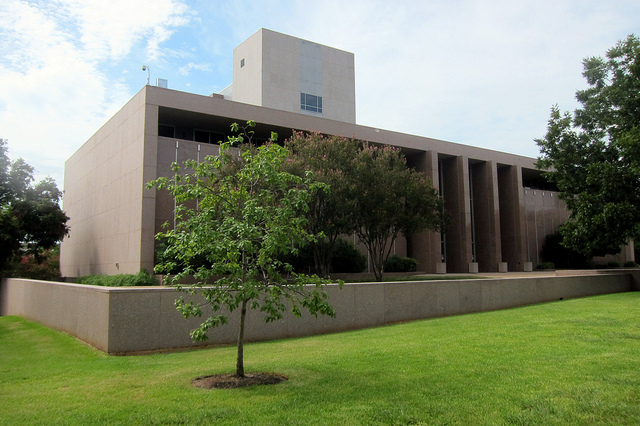Texas is known for many things — our rich state history, friendliness, football and George W. Bush, among other things. However, there is a single item for which we stand out in the wrong way, and that is our judicial selection process.
Texas is one of only five states to use partisan elections to pick judgeships, dating all the way back to 1876, in which Democrat and Republican primaries choose the candidate who will appear on the ballot for the general election: the nine Texas Supreme Court justices, nine Court of Criminal Appeals judges, all 80 judges of the courts of appeals, the Texas District Court judges, probate and statutory county court judges, constitutional county court judges, justices of the peace, and some of the municipal judges are selected in this manner. From top to bottom, Texas employs a political system to select an apolitical body.
Besides causing voters to ignore judicial contests, as a majority vote straight red or blue ticket, partisan elections threaten the sanctity of the judicial system. Continuing to elect judges who are tempted to serve their ideological constituencies and party planks instead of the people of Texas is wrong, intrinsically and morally. Judges are meant to be an impartial and fair body who ensure justice, who check the legislature and executive branches of government, not a “backstop,” as Justice Judith French said in her Ohio campaign, for the governor and state legislature’s actions.
Moreover, the chest of special interest money is essentially bottomless for judicial contests nationwide, with money pouring in from the very lawyers and special interest groups who will appear before the newly-elected judge’s court. In Pennsylvania’s supreme court elections of 2015, top donors — including business interests, unions, and plaintiffs’ lawyers (all of whom would likely appear before the court) — set a new spending record for state supreme court races.
Many law firms in Texas donate tens of thousands to state judicial candidates who will hear firms' cases, raising ethical concerns. Nearly half of judges surveyed in 2001 from state supreme courts, appeals courts, and trial courts believed that campaign money had some impact on judges’ decisions. It’s not so much the issue of improper influence on judges by campaign-donors-turned-plaintiffs as it is an issue of putting a judge on the bench with a particular ideological bias prone to rule certain ways in diverse cases.
In 2012, now-Texas Supreme Court Justice Don Willett quoted Greg Abbott, who said he was the “judicial remedy to Obamacare,” in a campaign video.
It’s no secret that courts have turned into a second legislature spurred by judicial activism. Packing the court with Judge A, who will strike down Policy Y if brought before the court, has become a rallying cry at the state and federal levels. Politicizing courts and inserting biased language about an array of hotly contested policies and beliefs forces judicial candidates into the turbulent partisan river.
State courts receive 95 percent of all cases filed nationwide and have a monumental impact on the social, political, and economic climate of the country as a whole. It would be foolish to turn a blind eye on how judges who rule in these cases are selected, foolish to let a turbulent river erode this country.
Proposed solutions to Texas’ system include an independent nominating commission that presents a slate of candidates to the Texas governor, who would then choose from that group, removing money and politicized campaigns as issues. However, this commission would need to be selected by the Texas Legislature so that it’s accountable to the people of Texas. Though legislators may seek to muddy the waters with partisan appointments to the committee, opposition from the “other party” would likely negate the chances of a loaded commission. The proposal would at least build a wall of separation between political officials and judges during elections and add judicial contests — hopefully — to what makes Texas, well, Texas.
Verses is a Plan II and environmental engineering freshman from San Antonio.





















